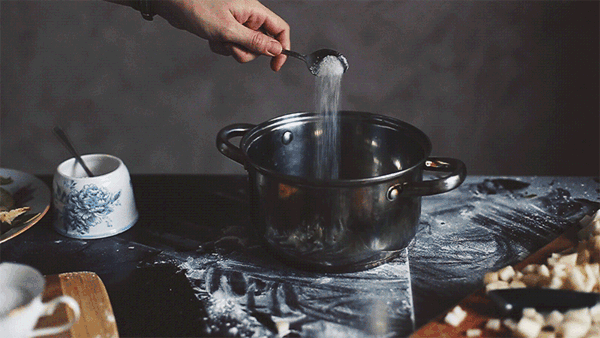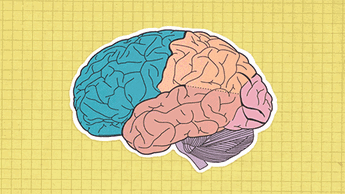
In 2020, the COVID-19 pandemic sweeping the world has made “immunity” one of the most popular words.
Under the influence of the epidemic, the public has paid more attention to health issues (94.4% of them are paying more attention to health due to the epidemic). In particular, attention to immune health has increased rapidly to 43.5%, which is the most concerned health issue.
Studies have found that there are many factors that affect immunity, such as gender, age, genetics, and lifestyle habits. Among them, some “bad” habits will weaken immunity and make people more vulnerable to virus attacks. Come and see how many of you have been hit?
1. Skip breakfast
A study by the Occupational Diseases and Psychology Center of Cardiff University in the United Kingdom showed that people who skip breakfast are more likely to catch a cold or flu. The reason is that skipping breakfast can easily cause metabolic disorders in the body, which can change the internal environment.

In addition, if you work without breakfast for a long time, your body will use the thyroid gland, pituitary gland and other glands to secrete hormones to promote tissue combustion, causing the thyroid to be in a “load state” for a long time, and the body is also in a negative balance . Over time, physical fitness will also decline.
Countermeasure
Not only eat breakfast, but also eat well. The energy intake should account for 25% to 30% of the total energy throughout the day.
A high-quality breakfast nutrition combination should be “four with two not”:
That is, there are starch staple foods, such as bread, rolls, etc., which provide energy for the brain;
There are milk, eggs, beans, etc., and the high-quality protein rich in them is the basis for the formation of antibodies;
There are fruits and vegetables, supplemented with a variety of vitamins, minerals and phytochemicals;
Have a spoonful of nuts to supplement unsaturated fatty acids and minerals;
Don’t fried food;
Do not grill or smoke products.
2. Hungry and full
The human intestinal immune function is affected by the circadian rhythm, which is related to the meal time. By eating on time every day, the body knows when to activate the intestinal immune system and when to let them rest, which can enhance immune function.
If the eating time is unpredictable, the intestinal immune system will be at a loss. Inactive when it is active, and over-tension when it is resting, it is easy to cause chronic inflammation in the intestines, and the resistance will also decrease.
Countermeasure
Do not overeating, do not diet to lose weight, and achieve a reasonable allocation of three meals, regular and quantitative.
Under normal circumstances, breakfast is arranged at 6:30-8:30, lunch at 11:30-13:30, and dinner at 18:00-20:00.
3. Picky eater and partial eclipse
No one kind of food can provide all the nutrients the human body needs, so picky eaters and partial eclipses can easily lead to malnutrition.
When we encounter viruses and bacteria, the body needs to urgently mobilize various resources to strengthen the energy supply and nutritional supply of the immune system, and reserve various strategic materials.
If the body is unable to make ends meet, that is, insufficient supply of energy and various nutrients, there is no logistical support in the war at this time, and there are not enough strategic materials. The only way is to demolish the east wall and supplement the west wall. Of course, it is difficult to defeat viruses and germs.
Countermeasure
Diversified food is the only way to get balanced nutrition.
Everyday, you should try to mix meat and vegetables, eat grains and beans together, take care of egg and milk, and have enough fruits and vegetables to ensure the supply of protein, fat, carbohydrates, minerals and vitamins. If some of the micronutrients cannot be obtained from the diet, you can choose nutrient supplements.
4. Eat too much salt

Excessive salt intake is not conducive to blood pressure control. Recent studies have found that high salt intake can also disrupt the immune function of the internal environment, significantly reducing the ability of neutrophils (a type of immune cells) in white blood cells to kill bacteria and reduce them The production of neutrophils, thereby reducing systemic immune function.
Countermeasure
Pay attention to less salt in your daily diet. If the taste is weak, add spices, chopped green onion, ginger, chopped nuts, sesame paste, peanut butter, etc. to enhance the flavor.
5. Lack of drinking water
Water is the basic component of our body. It is inseparable from every cell as small as the heart and lungs.
Adequate moisture not only keeps the mucous membranes of the nasal cavity and oral cavity moist and resists viruses, but also helps the body eliminate toxins and waste products, allowing the immune system to better fight infections.
Countermeasures
Plain boiled water is the best drink. Adults should drink at least 1.5 to 1.7 liters a day, especially the elderly who are not sensitive to thirst. Don’t wait to drink water until they are thirsty.
One indicator of adequate drinking water is that the urine is light yellow, too yellow means drinking enough water, and too transparent means drinking too much water.
6. Smoking and drinking
Passive smoking is as harmful to the whole body as smoking and reduces immunity.
Excessive drinking can also weaken the energy system and affect the immune system, making people more susceptible to the invasion of various foreign microorganisms. At the same time, alcohol can damage the gastric mucosa, cause health problems in the stomach, affect the body’s digestive function, and affect the body’s absorption of nutrients , resulting in decreased immunity.
Countermeasures
Not only can’t smoke, but also stay away from secondhand smoke. It is recommended that you try not to drink alcohol as much as possible. If you must drink, it is recommended that men consume no more than 25 grams of alcohol per day and women no more than 15 grams. 25 grams of alcohol is equivalent to 750 milliliters of beer, 250 milliliters of wine, and 50 grams of high liquor.
7. Lack of sleep
Studies have shown that sleep can directly participate or indirectly participate in the regulation of the immune system through its effects on the nervous system and neuroendocrine system.

Like the sleep-wake cycle, the body’s immune system has a certain rhythm. After sleep is disrupted, the body’s internal secretion is imbalanced, and the balance of the immune system changes, resulting in a decrease in immune defense function and an increase in the susceptibility of pathogens to infection.
Countermeasures
It is recommended to improve efficiency during the day and minimize staying up late due to work; if you cannot restrain the urge to play with your mobile phone at night, you can set automatic shutdown or download sleep management software. Try to ensure 8 hours of uninterrupted sleep every night.
8. Less exercise
Exercise can raise body temperature, not only stimulate blood circulation, improve cardiopulmonary function, but to a certain extent is beneficial to the phagocytosis of bacteria by immune cells. Therefore, too little exercise will not only reduce cardiopulmonary function and blood circulation speed, but also reduce immunity.
Countermeasures
Modern people have a lot of pressure at work, but under the normal basic physical condition, ensure that the amount of moderate-intensity exercise is 30 to 60 minutes every five days a week. Walking more than 6000 steps, cycling, playing badminton, swimming, yoga, etc. are all good choices for increasing daily exercise.
The elderly have poor exercise ability and physical tolerance, climbing mountains, bicycles, etc. easily damage bones and joints, causing knee injuries. Therefore, you may wish to increase resistance exercises to increase the content of muscle tissue in the body, such as elliptical trainers, tensioners, bungee cords and other exercises that resist your own gravity.
At the same time of exercise, you should also pay attention to supplement electrolytes, protein, vitamin C, potassium, calcium and other nutrients.
9. Too much stress
Long-term continuous stress is different from occasional stress, which causes a significant decrease in the immune system’s ability to fight disease.
Extreme stress can lead to a decrease in natural killer cells (NK cells), a decrease in T cell viability, and a decrease in the amount of macrophages that can enhance the immune system’s response.
Countermeasures
Do some stress-reducing activities and try to relax your heart. You can divert your attention through meditation, exercise, reading, talking on the phone with friends, etc., to reduce psychological pressure.
9. Don’t get the sun often
A study by the Yale University School of Medicine found that regular exposure to the sun can help reduce the harm of influenza viruses and other common respiratory diseases.

Researchers believe that maintaining high levels of vitamin D in the body can not only promote the absorption of calcium in the body, but also prevent problems such as sore throat, common cold and nasal congestion. Compared with people who spend less time in the sun, people who live in sunny areas are less infected with influenza viruses.
Countermeasures
Generally speaking, the ultraviolet rays in the sun at 10 am and 4 pm are low, which can promote metabolism and avoid damage to the skin.
The time for each sun exposure can be less than half an hour. After sun exposure, you can rub your hands and massage your face, which has the effect of calming the mind and relieving fatigue.
To improve immunity, you might as well start by changing the above bad habits.
No matter how busy you are, make time to exercise;
Regardless of the pressure, pay attention to a balanced diet;
No matter how tired you are, always eat a good nutritious breakfast. A qualified nutritious breakfast requires a variety of foods
In daily life, on the basis of a good immune system, according to the needs of the body, appropriate supplements of various nutrients, so as to be healthier… Trying to do this will not only improve disease resistance, but also improve mental and working conditions. It will also get better, try it now!
Comments